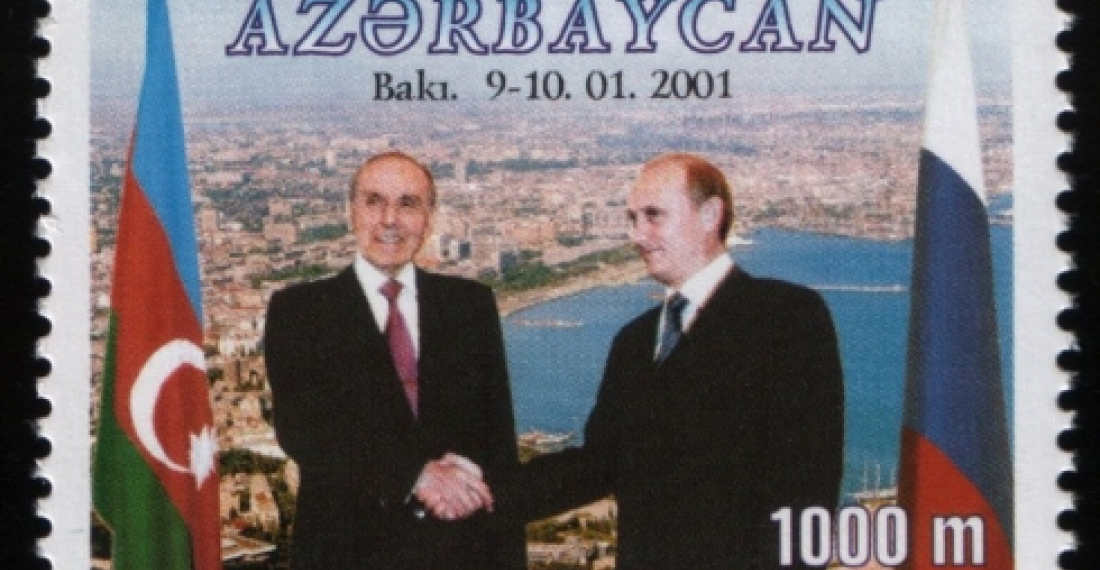Commentary by the political editor of commonspace.eu
The Russian media last week reported that Russian president Putin had stopped the sale of anti aircraft missiles to Azerbaijan. The report connected the decision to Azerbaijani claims that it will shoot down aircraft trying to use the airport in Nagorno-Karabakh without its permission. It also referred to the failure of the negotiations between Azerbaijan and Russia on the Gabala Radar facility. The facility is now due to shut down this month.
These developments however reflect a deeper rift in Azerbaijani-Russian relations.
Whilst the first two presidents of post Soviet Azerbaijan, Abdulfaz Elcebey and Heidar Aliev, tried to create a distance between their country and Russia, the current president, Ilham Aliev has staked a lot on building a good personal rapport with the Russian leadership, and between the two states.
Whilst the first two presidents wanted to punish Russia for its pro Armenian stance in the latter's confrontation with Azerbaijan, the task of Ilham Aliev was to try to break that relationship and turn Azerbaijan into a privileged partner of Russia. This was always bound to be a difficult and tricky operation.
Azerbaijan itself is sensitive about its regained independence and has no wish to lose any of it. It is also jealous for its economic independence. Azerbaijan has been able to secure economic independence through its arrangements with western companies for the exploitation of its natural resources. This has irritated Russia but Azerbaijan has no wish to lose that either.
But more importantly, what Azerbaijan seeks from the relationship with Russia is support for its position on Nagorno-Karabakh. In this it has got none. Now the frustration is increasing and the strain on the relations between the two countries is starting to show.
Russia, directly and through the CSTO military alliance has become increasingly more visible in its support for Armenia. On Nagorno-Karabakh it conveniently hides behind the facade of the Minsk Group, enabling it ditch any Azerbaijani pressure. That process has now grinded to a halt.
Gone are the cosy meetings and skiing excursions in Sochi, which had become the hallmark of the "special" Aliev-Medvedev relationship between 2008-2010. Putin does not do "cosy" very well and prefers to come to the point. He has made his position clear.
Azerbaijan is now trying to reposition itself. Speaking this morning in Baku, Azerbaijani Deputy Foreign Minister Araz Azimov described as a rough joke the comments made by the Head of the CSTO Nikolay Bordyuzha in Yerevan last week that it was not permissible for Azerbaijan to shoot down civilian aircraft. Azimov said that Azerbaijan does not intend to shoot down civilian aircraft, but will ensure the implementation of the Chicago Convention on aviation. Azimov was also dismissive of the current work of the Minsk Group. He said that no progress has been made since 2010 and described the last meeting in Paris on 28 January as “unsatisfactory”. Whilst Azimov stopped short of attacking Russia directly there was implicit criticism in his words.
However the internal debate in the Baku leadership on relations with Russia continues. Various members of parliament over the last days have spoken about the need to solve any outstanding problems with Russia. There is within the Azerbaijani leadership a strong “pro Russia” lobby. Their position has however been weakened by recent Russian actions and failure of Russia to deliver on Azerbaijan’s expectations.
Azerbaijan has some cards to play still if it wants to. It may withdraw from the CIS, but this is considered highly unlikely. It may seek to annoy Russia by dancing closer to the western tune. This may also not be so convenient because of domestic political considerations. Its best cards remain in the field of energy where by expanding its independent line, especially on Caspian energy issues, Azerbaijan hopes it may get Russia to think again.
This commentary was prepared by the political editor of commonspace.eu.
photo: A stamp commemorating a meeting between President Putin and the late President Heidar Aliev in 2001.







